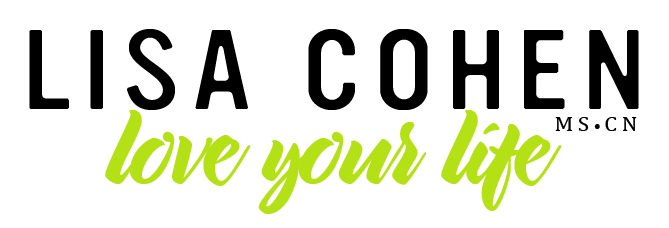Keto Diet 101
/So what exactly is the Keto Diet?
The ketogenic diet is like Atkins but amplified. Instead of just low-carb, it’s “almost no carb” and lots of fat. It’s been around for a long time but has recently gotten a lot of attention.
A ketogenic diet has been shown to help some people lose weight (yes, even with the high fat). It can also help improve certain health conditions, like epilepsy in children.
Read on for some of the lowdown on how it reprograms your metabolism (for “ketosis”), and whether or not it’s something for you to consider.
What is “ketosis?”
Carbs (sugars & starches) are the preferred fuel for your brain and muscles. They will use carbs first, whenever they’re available.
This is why maintaining stable blood sugar can affect your attention, mood, and energy level.
However, when very low amounts of carbs are available for fuel, your body starts making compounds known as “ketones.” These are your body’s “backup fuel.” And your body makes them from fat.
Ketogenic literally means “the generation of ketones.”
After a while being on a diet very low in carbs, your blood level of ketones increases. This is the metabolic state known as "ketosis." It's the same process that your body goes through if you've fasted for 72 hours and depleted your supply of carbs as fuel. That's the trigger for turning fat into ketones.
Note: “Ketosis” from a ketogenic diet is not the same thing as the dangerous condition known as “ketoacidosis.”
Ketogenic diet for weight loss
With a high fat intake, it may be surprising to know that studies show that a ketogenic diet is effective for weight loss. But it’s true.
It can also have better results than low-fat diets. At least one study showed that people lost 2.2 times more weight on a ketogenic diet than those on low-fat or calorie-controlled diets.
How is this possible?
Eating all that fat and protein is filling! It helps release satiety hormones that tell us that we're full and satisfied, and we don't need to eat anymore. Many people don't need to count calories or track food intake, as they do with low-fat or calorie-controlled diets.
So, by eating enough fat and protein to go into “ketosis,” you can actually feel fuller and eat less food overall. Of course, this can help with weight loss.
Ketogenic diet for improved health
Some studies show other health benefits of the ketogenic diet.
As you can imagine, having very low levels of carbs can help reduce blood sugar and insulin issues.
One study showed improved blood triglycerides (fat) and cholesterol numbers. Others show lower blood sugar levels, and even up to 75% improvement in insulin sensitivity.
Several studies show reduced seizures in children who follow a ketogenic diet.
Changing your metabolism has widespread health effects. And this can be beneficial for some people.
How to do the ketogenic diet
Not everyone should go on a ketogenic diet. Make sure you speak with a trained healthcare practitioner before you try it. It can have side effects, including the infamous “keto flu.”
The ketogenic diet involves getting 60-75% of your calories from fat, 20-35% from protein, and just 5% from carbs. Many people find it quite restrictive and are unable to stay on it for a long time.
The foods to focus on for a ketogenic diet are meat, fatty fish, eggs, nuts, seeds, healthy oils, avocados, and low-carb vegetables (cucumber, celery, peppers, zucchini, leafy greens, etc.).
The main thing to avoid are foods that are high in carbs. These include sugary foods, desserts, processed foods, and alcohol. It also includes certain healthful foods like grains, fruit, legumes and starchy vegetables.
Because of the limits on fruit and starchy vegetables, many people on the ketogenic diet need to take supplements. This is because, in addition to their sugar and starch, fruits and starchy veggies are a great source of vitamins, minerals, and phytonutrients. So, if you're cutting those foods out, you still need to give your body those nutrients. And often, it means needing supplements.
Conclusion
The ketogenic diet is very popular these days. It can be helpful for weight loss, and other health conditions.
It’s not for everyone, so make sure you check with a knowledgeable practitioner before you begin.
Recipe: 3-Ingredient Keto Chocolate Pudding
Ingredients:
- 1 can full fat coconut milk
- 2 ounces 100% dark chocolate, finely chopped
- ½ teaspoon vanilla stevia
Instructions:
1. In a vitamix puree coconut milk and chocolate until smooth
2. Blend in stevia
3. Divide mixture between six 5.5 ounce jars
4. Refrigerate for 24 hours
References:
http://www.precisionnutrition.com/ketogenic-diet
https://authoritynutrition.com/ketogenic-diet-101/
http://neurotrition.ca/blog/going-keto-what-science-saying-3-safe-ways-do-it



